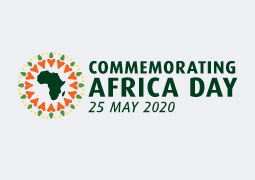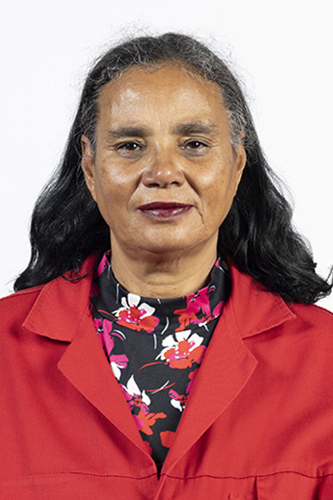
Delivering a keynote address on Silencing the Guns: creating conditions for Africa’s development to achieve the goal of a conflict-free Africa in an Africa Day Lecture hosted by Parliament, Prof Adekeye Adebajo, the Director of the Institute of Pan-African Thought and Conversation, which is based at the University of Johannesburg, gave a contextual overview of where Africa is at today in its quest to silence the guns and bring about peaceful and democratic transition in its nation states.
In his opening remarks, he commented that “African ancestors are angry because things are not working. Institutions are decaying, a situation that is tantamount to Chinua Achebe’s “things fall apart” metaphor.
He blamed this partly to the devastating effect of slavery and colonialism which in his words “have ravaged the continent’s future and plunged it into an endless quagmire of instability”.
“This is a legacy that goes back to the Berlin Conference that justified slavery and colonialism. This event allowed European powers to impose their own governance systems which politicised the demarcation of African borders which, in turn, has resulted in the loss of millions of Africans defending these artificial borders,” he opined.
Citing the late Kenyan-born academic, Prof Ali Mazrui’s haunting question, “who will keep peace in Africa now that the Europeans have left?” – Prof Adebajo used this question as the context within which to reflect on the topic at hand.
In this regard, he lamented the fact that the African Union (AU) “still acts like a military guinea pig, that is, it is still without the necessary logistics and financial muscle to undertake its peace-keeping role”.
He then touched on various African military architecture that sought to broker peace and stability, which is linked to the establishment of an African [Military] High Command.
According to him, South Africa’s centrality to Southern Africa cannot be discounted. After the first democratic elections in 1994, South Africa was no longer a destabilising force, but a country that played a huge role in peace-keeping missions in Africa. “It should be noted that [former President] “Thabo Mbeki played a significant role in this regard in countries such as Burundi, Zimbabwe and Lesotho. South Africa’s energetic role in peace-making cannot be overlooked.”
Mbeki’s peace-making missions, he said, were historically inspired by the ideology of Dr Kwame Nkrumah (the late first Prime Minister and President of Ghana), who advocated, earlier on, “for the establishment of African High Command Force that would be charged with keeping external forces from interfering in African military affairs”.
He said although this ideal was never realised, regional military entities emerged to broker peace in regional conflicts to foster peace and stability with relative success.
While South Africa was heeding a call for African peace-making missions in Africa, Prof Adebajo said: “Nigeria, an economic superpower, was not living up to expectations. It was instead plagued by its own internal conflicts, and this has brought about doubts whether Nigeria could really be a force of stability or instability.”
He said the ongoing instability in the Great Lakes Region, characterised by the long-running wars in the Democratic Republic of Congo (DRC), is an indication of Africa’s failure in its noble quest to “silence the guns” as a precursor to peace and political stability. “The DRC, with all its riches, has been infested by genocide based on Belgium’s social engineering. The 20 000 United Nations (UN) Forces there have observed the slaughter of DRC’s civilians rather than stop it,” he commented.
Worse of all, he said Congo has become the carcass of Burundi, Uganda and Rwanda, which are looting its resources. “So bad are conditions in Africa that many Africans, especially the youth, spare no effort to traverse the treacherous seas to reach Europe in search of a better life,” he added.
He commended South Africa’s role in inserting the African agenda on the UN Security Council’s agenda. “The focus that South Africa brought on the plight of the people of Congo has shown its resolve in upholding the African agenda at all cost in this UN organ.”
In the same breath, he decried the fact that most “African military resolutions in this UN organ are still being drafted by Britain and France, countries that are, in his view, no longer superpowers”.
“Nonetheless, South Africa has brought the agenda to silence the guns at the centre of the implementation of peace-keeping missions in war-torn Africa,” he said.
He said one of President Cyril Ramaphosa’s success as a chair of the council “was to deal with the marginalisation of the AU in peace-keeping missions in Africa in the UN Security Council.
He also commended the South African Parliament’s mission to ensure that the SADC (Southern African Development Community) Parliamentary Forum “has a peace and security mandate to help to silence the guns”.
He said although the AU’s failures to achieve this cause should be recorded, its progress should also be noted. “Currently, the AU has had interventions that brought stability and that uprooted unconstitutional replacements of governments. Under its stewardship there are now more regular democratic elections, and there is now a rotation of ruling parties, this is an indication of political tolerance and democratic maturity in Africa by and large.”
Commenting on the lecture, the Chairperson of the National Council of Provinces (NCOP), Mr Amos Masondo, said: “There is a long way to go before we silence the guns. This depends largely on the achievement of inclusive growth and the reduction of poverty. We meet under the times of a pandemic that brings on board a unique experience for Africa and the world,” he said.
Speaking on the topic of “Galvanising Pan-African Unity to Realise the African Agenda”, he stated that the quest for an African identity and emancipation from colonialism, racial exploitation and social ills, is at the centre of the AU’s programme of action.
“The AU strives for continental unity to fight against all forms of exploitation, inequality and its related attributes.”
But unity among African countries to achieve political emancipation, cooperation and a better life for all Africans also remains the object of the AU, he commented.
But most of all, he said, the launch of the AU in 2002 was “a blueprint for the expression of the African Agenda, which later culminated in the inception of Agenda 2063”.
He said for the first time in history, African states agreed in principle on the need to “accelerate economic integration, promote and defend African common position, peace and security and democratic principles and institutions”.
But also, he pointed out, its inception heralded the continent’s appetite “to play an active role in the global economy. But also, to establish instruments that would advance good governance such as the African Peer Review Mechanism”.
This was a determination on the part of Africa to be proactive even in its marginality, and asserts its relevance in global affairs, said the Chairperson.
Apart from that, Mr Masondo said the AU sought to champion the elevation of the uniqueness of the African identity through the promotion of African languages as economic languages, rather than as peripheral mediums of socialisation. “At the centre of this quest is the promotion of African historical and cultural heritage, and to offset foreign languages as mediums of Africa’s economic and intellectual activity, the result of which is the establishment of the African Museum Project,” he said.
To him, all these advances form an integral to the AU’s 2063 Agenda, which serves as a “strategic planning instrument for the development of Africa – and for repositioning Africa as a significant player in global affairs”.
He reckons that these are important interventions that would not only galvanise African unity, but that would also register the AU’s tangible contribution to what the continent wants to achieve in accelerating Africa’s economic growth.
He concluded by stating that the Pan-African Parliament (PAP) has been instrumental in initiating discussions on how to conduct oversight over the AU’s resolutions, and how it can weigh in in challenges facing Africa today.
By Abel Mputing
25 May 2020

